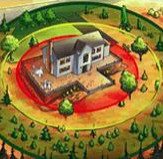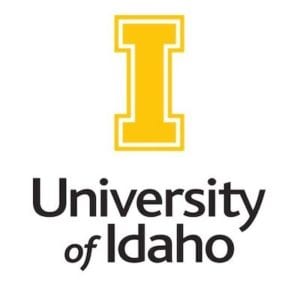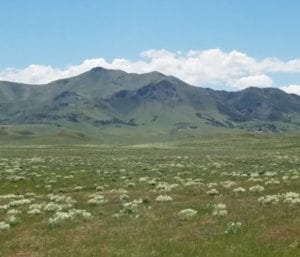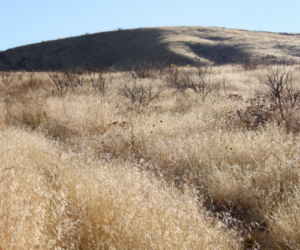Training / Class
Visit the training website.
The USU Restoration Consortium has partnered with the NRCS West National Technology Support Center and the BLM Aquatic Resources Program to develop a standardized Low-Tech Process-Based Restoration training series. These courses are pending incorporation into AgLearn and DOI Talent. Students will also receive continuing education units (CEUs) and a professional transcript from Utah State University.
Access the training.
With this training we have the opportunity to learn about Native History in the US, and the resulting trust responsibility of the federal government as a byproduct of colonization. The training then dives into Tribes present day, where sovereignty and self-determination are explored and the third module leads us into culture and identities of Indigenous Peoples across what is now known as the US, with a learning objective to “offend Natives 50% less of the time AND engage with tribes 25% more effectively!” Training background and content summary from the Nature Conservancy.
Access online training modules.
Learn how ESCAPE (WUI Fire Evacuation and Sheltering Considerations — Assessment, Planning, and Execution) provides crucial guidance for wildfire evacuation planning, enhancing life safety for civilians and first responders.
Access training videos.
This virtual- and field-based training was developed and hosted by the Oak Woodlands & Forests Fire Consortium, Lake States Fire Science Consortium, and the Huron-Manistee National Forests. The virtual event was held June 1-4, 2021, and introduced participants to:
- tools for selecting metrics that match management/restoration objectives;
- developing site-specific protocols for sampling;
- developing a monitoring handbook and monitoring protocols/program for your local ecosystems;
- how to establish long-term monitoring and quantitative/qualitative data for wildfire risk assessment;
- evaluating the need for prescribed burns and other fuels treatments.
Visit course website.
Learn how ESCAPE (WUI Fire Evacuation and Sheltering Considerations — Assessment, Planning, and Execution) provides crucial guidance for wildfire evacuation planning, enhancing life safety for civilians and first responders.
This course is available anytime and takes about 3 hours to complete.
More information and registration.
Explore the Role of Ranchers in Fire Ecology and Land Management
While most wildfire research in the western U.S. focuses on public lands (e.g., Forest Service, BLM, Park Service), private ranches—especially across the Southern Rockies—play a crucial role in managing biodiversity, supporting rural livelihoods, and mitigating wildfire risk. Ranchers are increasingly engaging in land stewardship and collaborative research to build resilience against extreme wildfires.
About the Western Ranch Management and Ecosystem Stewardship Program (WRMES)
WRMES promotes sustainable ranching practices that support forests, rangelands, wildlife, water resources, and
rural communities in the Intermountain West by providing classes, research, outreach, and a masters degree.
Highlights (4 Weeks):
• Visit 8–10 working ranches representing diverse ecosystems and management approaches.
• Learn strategies directly from ranchers creating both ecological and economic sustainability
More information and registration.
Grass Identification Course
Thursday-Friday, June 12-13, 2025
Rinker Rock Creek Ranch
Rock Creek Road, Blaine County (near Hailey, Idaho)
Rinker Rock Creek Ranch will be offering a two-day field course taught by Justin Trujillo (author of A Field Guide to Grasses and Grass-like Plants of Idaho) that will focus on learning the basic morphology of grasses and grass-like plants. This course will cover identification of mostly cool- and some warm-season grasses common in the sagebrush steppe. Students will receive a plant press, hand lens, and identification book for the course fee.
This course does not include meals; those enrolled should plan to bring food/snacks and water into the field each day.
Camping will not be available on the ranch. Here are some campsites nearby:
- Picabo Angler RV Park
- Hayspur Fish Hatchery Campground
- Stanton Crossing Campground
- Silver Creek West
- Silver Creek East
This course is eligible for 6 CEU credits through the Society for Range Management.
Register early – the course is limited to 20 participants.
Questions? Please email Justin Trujillo (jjtrujillo2003@gmail.com) or Dr. Tracey Johnson (traceyj@uidaho.edu)
Training details and registration.
In this streamlined class, you’ll learn how to guide a focused and actionable Community Wildfire Protection Plan process that delivers results. You’ll learn to:
- Map out each stage of CWPP development
- Assess local wildfire risks using trusted tools
- Engage your community and prioritize treatments
- Build and implement a results-driven action plan
Training will be JUNE 9 – 10
8 A.M. – 5 P.M. Redmond Fire and Rescue
341 NW Dogwood Ave. Redmond, Oregon
This three-day short course covers the unique taxonomy associated with the Sunflower Family, Asteraceae. Basic terminology, dissection skills, and use of a key are critical elements of this class. We will cover not only how to identify sunflowers, but how to collect and press them for future reference or for the purpose of mailing to others for identification or verification. You can anticipate seeing about 60 different sunflower genera. This class is for participants with beginner through intermediate skills.
Instructor: Arnold (Jerry) Tiehm, M.S, Great Basin Flora Specialist
atiehm@unr.edu
Cost: $240 for non-students, $120 for students
Fees for optional credit units are paid separately when you enroll with UNR for Spring or Fall semester.
The simplest method for payment is to bring a check to class made out to Board of Regents. Contact the instructor for other payment options.
Registration: Sign up by emailing the instructor at atiehm@unr.edu
Timing: Class will be July 8-10, 2025
Additional details: Class size is limited to 30 participants.
Class will be from 8:00 am-12:00 pm, one hour lunch break, 1 pm-5 pm daily. It will be held in room 300G of Fleischman Agriculture at UNR. Hot water and some coffee and tea will be available in the classroom. This class may be taken for 1 unit of optional credit during either semester. Let the instructor know if you want to receive credit so you can obtain a class number. You must also pay the separate credit fees with UNR.
Course registration
Annual conference focused on educational presentations regarding noxious weeds, identification, and management for the Southwest.
Early Registration: $150 (Mar. 1 – June 30)
Regular Registration: $175 (July 1 – Aug. 4)
Late Registration: $200 (Aug. 5 – 7)







